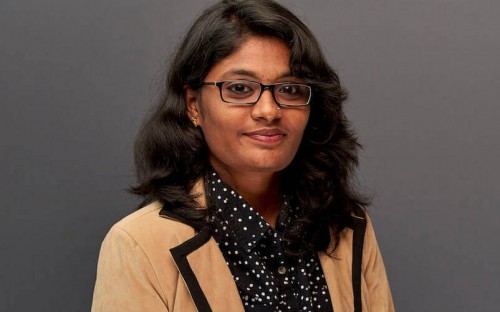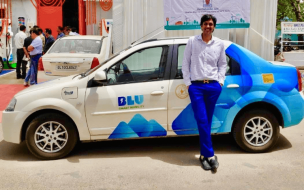For three years, she worked as a systems engineer in Bangalore. Then, in late 2016, she moved to spend a year at Tata’s offices in London. While there, she decided to pursue an MBA degree, to learn more about management and switch from the technical to the business-side of the company.
Sukanya needed to secure a year out from work for her MBA. When she told her employers she was applying for an MBA at the triple-accredited Aston Business School, they were only too happy to oblige. After graduation, she’d return to Tata in a more business-focused role.
In making the switch from engineering to an MBA and into business, she’s not alone. Former engineers are among the most prominent student bodies on any MBA campus.
Sukanya chose Aston for its multicultural class and the Aston Edge, a unique personal development program focusing on the more elusive, social, and personal side of business. She completes her degree in September and graduates in April next year.
How has she found going from engineering to an MBA? BusinessBecause caught up with Sukanya to find out more.
Why do so many engineers do MBAs?
Even if you have the technical knowledge, you can only provide the best solutions if you understand more about how the business as a whole. Engineers take MBAs to learn how business works. It helps them to think outside the box and give the perfect solution for a problem.
What advice do you have for an engineer considering an MBA?
You need to find out what your exact passion for business is. You shouldn’t do it just for the degree or to move up in your career. If you have a passion for a specific area—like marketing—then sometimes you just need a masters. But if you’re someone like me who’s looking to diversify in the future, then you should go for an MBA.
Why did you decide to pursue an MBA in the UK?
To prepare myself for management I wanted to broaden my perspective; to learn in a class with a mix of cultures, and learn how to manage in different countries.
I was looking at Australia, England, and Canada, and since I had already worked in London for a year, I knew the culture in England was very diverse. Brexit did not have any impact on my decision. My goal wasn’t to land a job in the UK after the MBA, so I wasn’t too concerned about it.
Birmingham is the second-largest city in England. I thought I could still have access to a fast-moving city like London, but also experience countryside lifestyle too and work with more SMEs and smaller companies.
Aston is a triple-accredited school and the Aston Edge structure—which, apart from business, focuses on personality development, career management planning, and what employers are looking for—stood out. After I spoke to alumni, I knew it was the best place for me to do an MBA.
What stands out from your MBA experience?
I took part in the Aston Enterprise Competition, pitched, and won the student choice award for my idea!
My idea was to develop a device for a bracelet, necklace, or ring, which would help women communicate with an emergency contact if they get into trouble when out on their own. The device would send the GPS location across too and include a high-volume alarm to detract any predator.
At Aston, I developed more of an interest in entrepreneurship and I also learned about service innovation; something very developed in the West, but in its early stages in India. Now, with my dissertation, I’m looking at how service innovation can be applied in India.
Who’s your favorite professor at Aston Business School?
I have two! Dr. Uwe Napiersky taught me about leading strategically in organizations. All his classes were more like discussions than standard lectures—he brought in a range of different perspectives. And then, my project supervisor Dr. Ali Bigdeli. He’s the one who inspired me to pick my topic for my dissertation.







